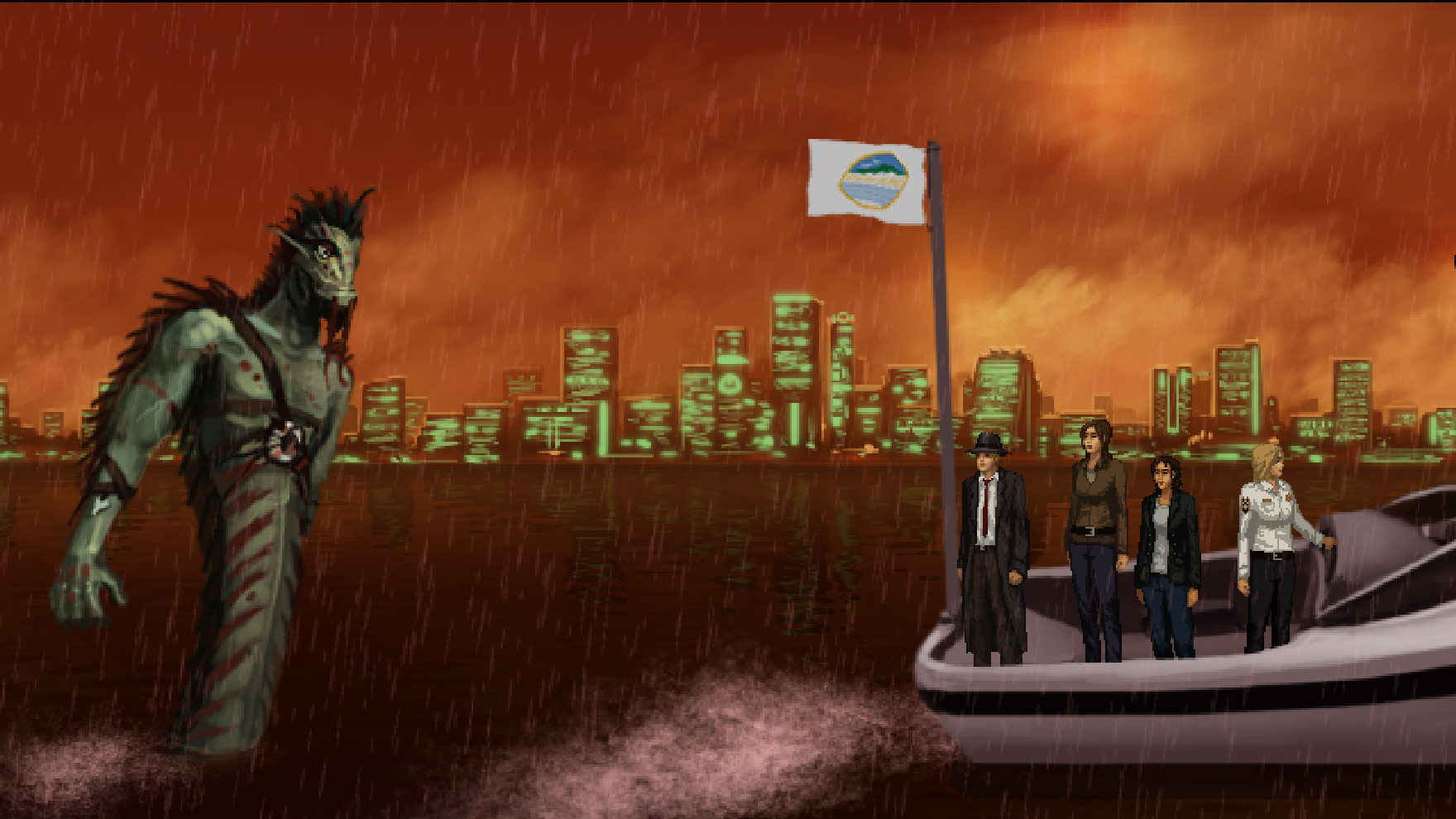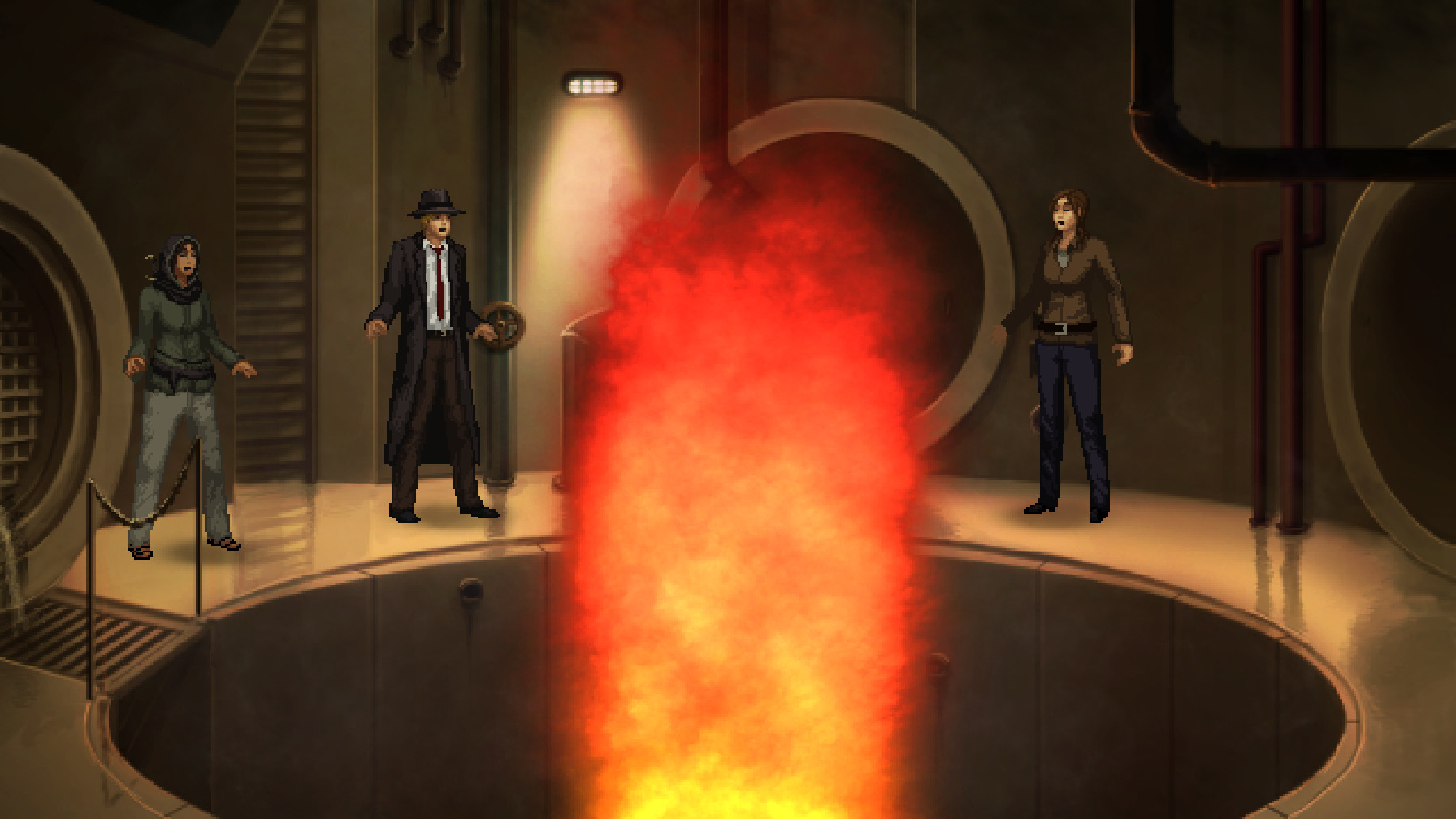Platform:
PC
Released:
August 8, 2018
Publisher:
Wadjet Eye Games
Developer:
Wadjet Eye Games
There’s something very attractive to me about the urban fantasy genre. I understand the love for high fantasy. The natural beauty of the foothill of Hobbiton may sound lovely, but many people these days don’t get to live in such a locale. That’s why I find urban fantasy so enticing. We can live in that world. A world where beyond our typical, mundane facade lies a world of the fantastic. So it’s only natural that Unavowed, filled with mages and demons, lays its roots in New York City.
A year ago, you were possessed by a demon. Stripped of your will, you left a trail of destruction through the Big Apple. You are saved by the Unavowed, an ancient order dedicated to stopping the forces of evil. You are now free of otherworldly influence, but you cannot return to your old life. Your friends have abandoned you, and the police are on your tail. Your only choice is to assist your saviours, to join the Unavowed.
So the plot of Unavowed has this interesting little vibe to it. It reminds me a lot of those kinds of TV shows that would be half buddy cop, half action, and for good measure, half sci-fi. There’s this odd kinship between characters where everyone shares a bond that goes deeper than just people with the same goal. I always love the old ragtag bunch of misfits dynamic.
Although there is one thing that did drag things down a bit. There is lots of talk about how much of an influence the player can have on the story. There is influence, sure. You can give your character a choice of different backgrounds, a bar tender, a cop, or an actor. This does sort of change things. You may already know a character you meet in the following story or you may have certain dialogue options available, based on the skills and connection that role affords you. But a lot of the game is less explicit and clear cut. The problem, I suppose, is lots of the choices take a long time to see their payoff. They’ll acknowledge it sure, but big life or death decisions were merely discussed as part of a big Unavowed meeting rather than occurring organically at the time of the choice.
The fact remains though, they really hold onto their cards until the end of the story. To me, it just feels a bit off-kilter. It feels like this is a game that really didn’t need to add this feature. It feels like this is a game that was a great point and click, but they really wanted to jump on the dialogue choice bandwagon. There is replayability, but I’ll warn you now, not unlike some of the choice mechanics, this feels rather illusionary. You will get some differences and some chuckle-worthy scenes went unseen until a few cycles in. But for me it didn’t feel like enough to justify playing again. If you really want to stretch the value as far as you can, be my guest. But my philosophy is quite simple on this matter: short but concentrated is better than long but diluted.
After playing the game twice, I took completely different strategies and different decisions. I forged stronger bonds with my fellow demon fighters. I made better decisions. Made more allies. Used allies better. I put so much work into the second game. I did anything I could to improve the ending on my second run. Several hours later, I finished up my run with identical endings. I have in fact played once more after writing things up and realised a few more endings are there. Although my original experience illustrates that choices have less impact than expected.
There is a vibe with this game that the developers tried to add features that don’t completely stack up. Take, for example, the party mechanic. For each mission, you can choose your two partners from the current members of the Unavowed. Each has different skills, the two members you meet first are Eli and Mandana. Eli is a fire mage, he can burn stuff, melt ice, and later read burnt documents. Mandana is a jinn-child and is the most physically capable, so she can climb stuff or deal some attack out if needed. So they by default are going to be your two party members until you acquire more. Here’s the thing though, one or more of them must be in your party for every mission. Let’s be fair, you don’t get so many members that this is terribly restrictive. But I would be lying if I said this development was an underwhelming surprise. I guess I was wondering how they would negotiate people picking the wrong party members, and I got my answer.
“Unavowed could have done perfectly fine with just the standard point and click formula and gotten away with it too, if it weren’t for those meddling features.”
This speaks to the fact that some of the features of this game feel at odds with the game itself. Unavowed could have done perfectly fine with just the standard point and click formula and gotten away with it too, if it weren’t for those meddling features.
I’d enjoy this game a lot more if those kind of additions were used properly or even if they weren’t added at all. Hopefully, it could pull some people into trying the game, but it isn’t really a positive in my mind. It doesn’t destroy my enjoyment of the game, but it certainly leaves a mark on the experience.
Positive:
- Great urban fantasy world building
- An interesting story and sub-stories
- Good characters
Negative:
- Choice narrative has underwhelming consequences
- A false sense of replayability
With all the criticisms leveled at Unavowed, it’s not unreasonable that you’d expect that I dislike the game. The fact that it overreaches and overpromises on features is an issue that leads to a game that has some features, like choice of party members, that really don’t fit with the game’s limitations. The use of choice based narrative also really doesn’t gel with the lackluster branching story. Sure these all cast a shadow on proceedings. But in truth, the game’s theme, the gameplay and the world, all supersede the faults of Unavowed. This is a fantastic game worth playing once, but expect diminishing returns on repeat plays









